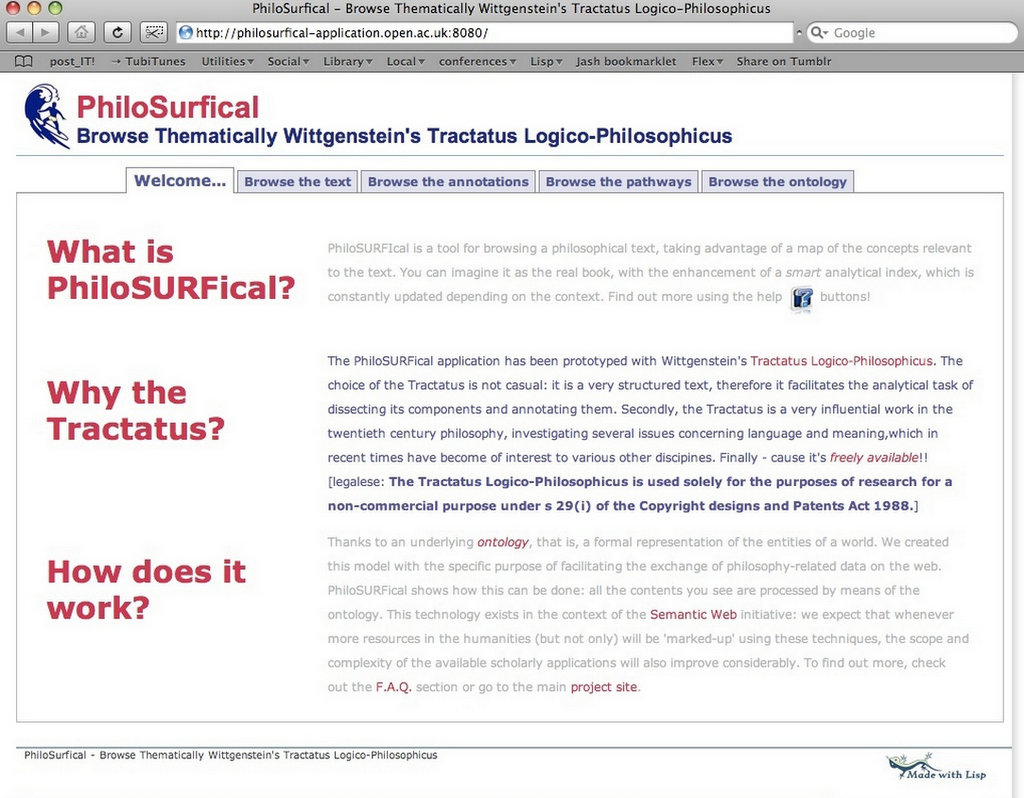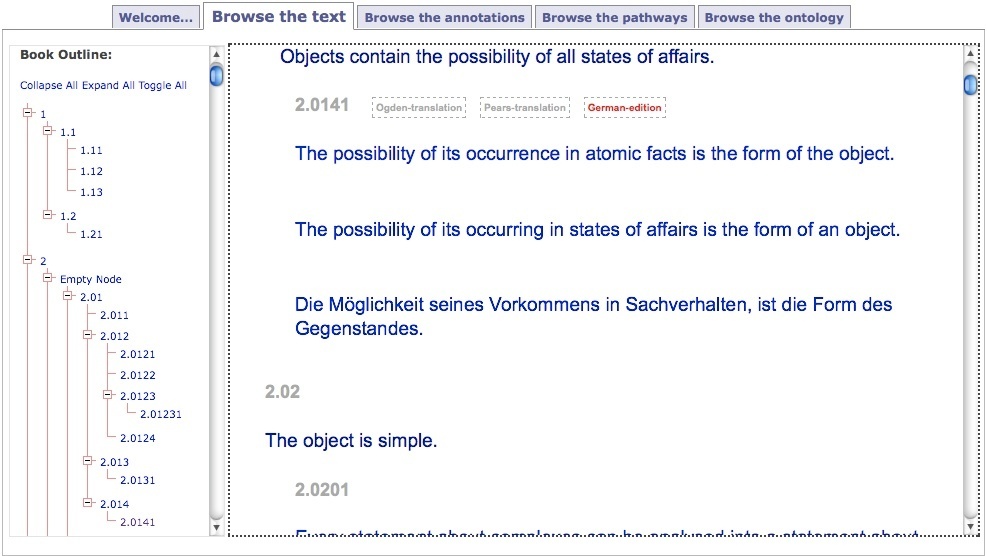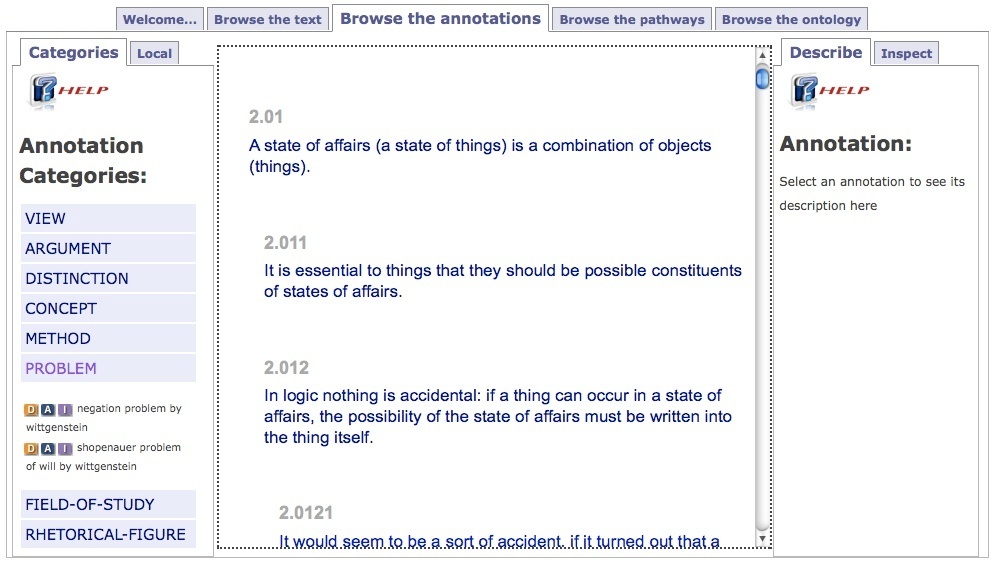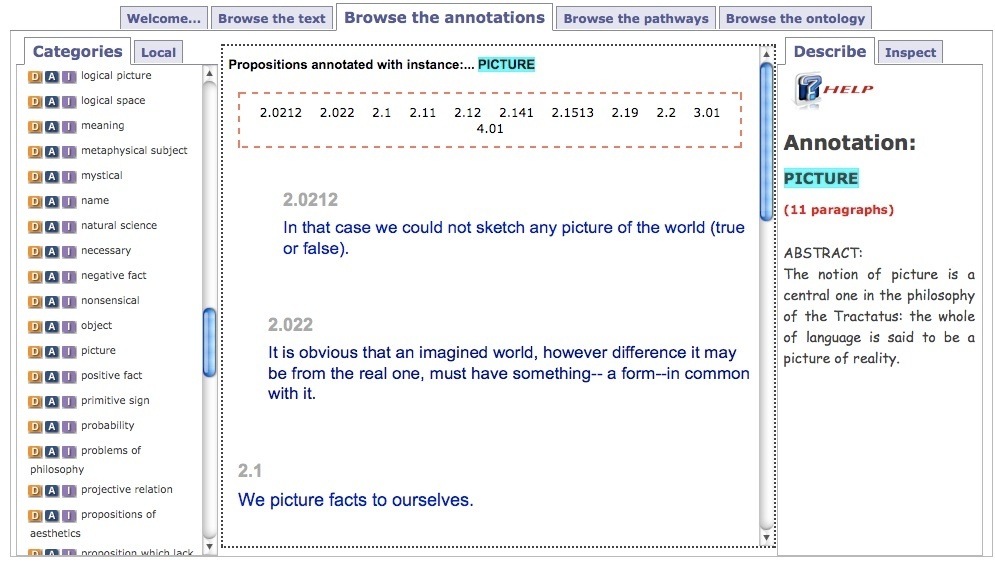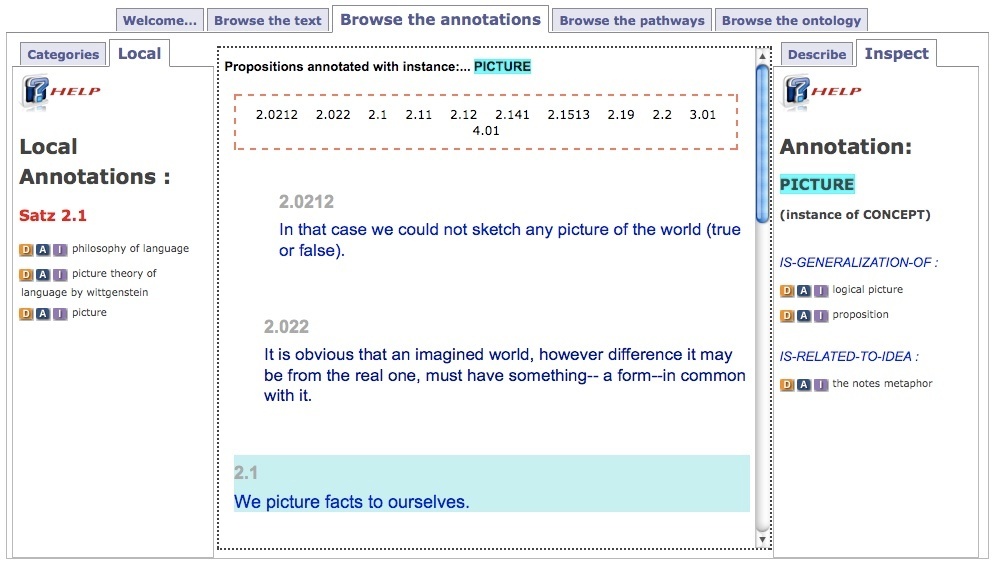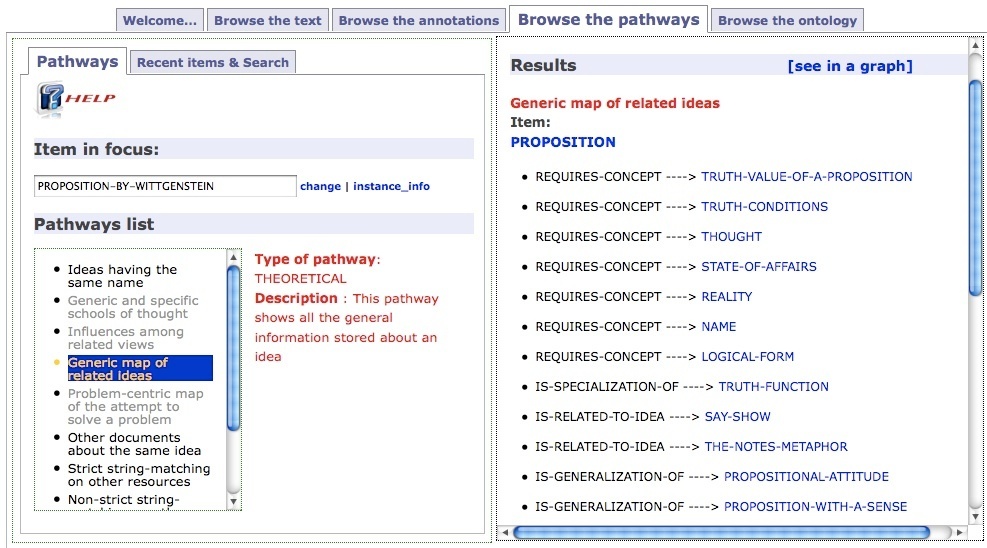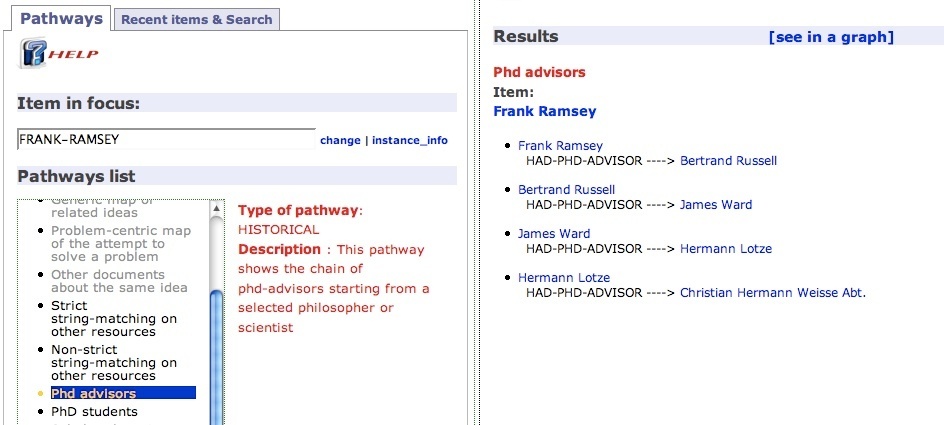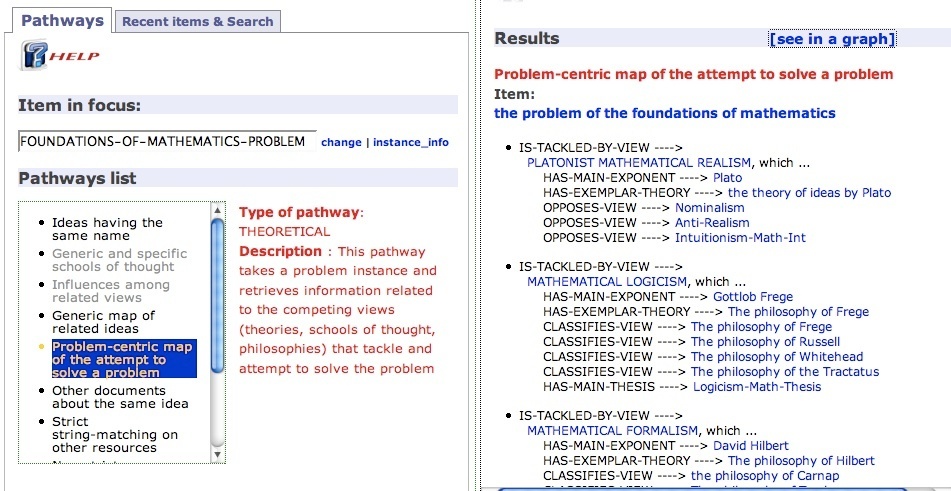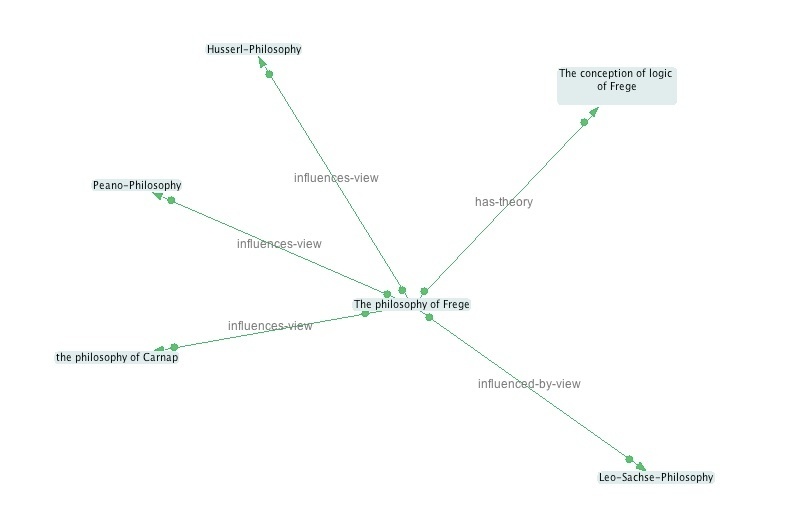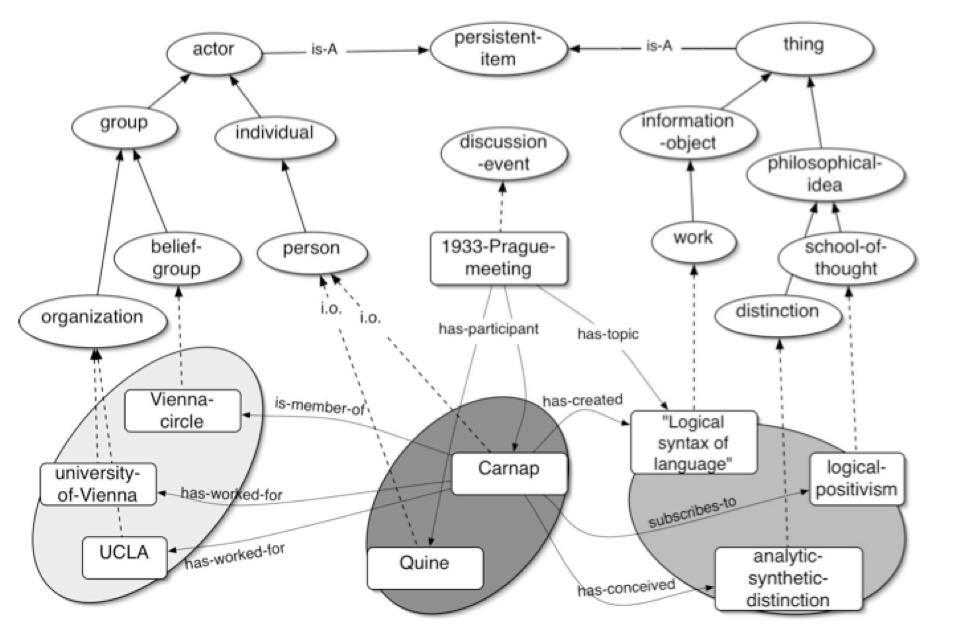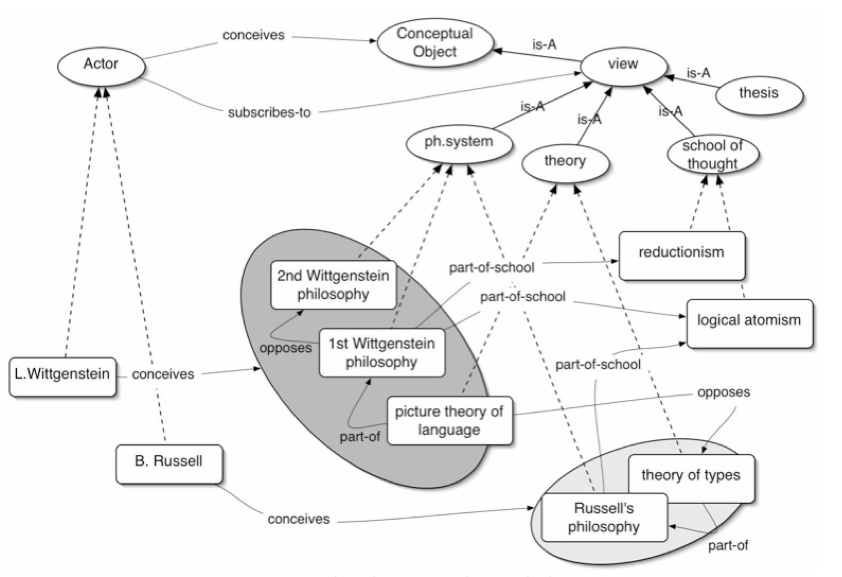PhiloSURFical is an ontology-based software for browsing a philosophical text, taking advantage of a map of the concepts relevant to the text. The PhiloSURFical application was prototyped with Wittgenstein's Tractatus Logico-Philosophicus and it allows the navigation of a semantically enhanced version of the text.
I developed PhiloSurfical as part of my PhD dissertation at the Knowledge Media Institute, Open University, UK.
By relying on an ontology created to describe the philosophical domain at various levels of abstraction, users can benefit from multiple perspectives on the text and on related resources.
The papers section of this website contains several articles about this work, but mostly, you should look at this article on Synthese for an in-depth discussion of the ontology, and this book chapter for a more e-learning perspective.
The PhiloSURFical Ontology
The PhiloSURFical ontology characterizes the multiple dimensions of the philosophical domain at a high level of abstraction, thus facilitating reasoning and data integration tasks in cultural informatics applications. The ontology contains classes and relations modeling concepts related to both the factual (eg. events) and theoretical (eg., ideas) dimensions of philosophy. It has been constructed as an extension of the CIDOC-CRM ISO standard.
In particular, the ontology was constructed so to support philosophy students in understanding key aspects of the discipline’s discourse. This is achieved by means of a pathway creation process, i.e., an approach that gives students the means for actively contextualizing the resources they have found so to better analyze and interpret them in the light of the multiple roles they play in the world of philosophy.
For example, some of the learning pathways which inspired the design of the ontology are:
Find below a few diagrams of the entities and relations the ontology represents; much more information about this research work can be found in the papers section of this website.
Date: Oct 2004 - Nov 2008
Link: http://philosurfical.open.ac.uk/tour.html
Link: https://github.com/lambdamusic/philosurfical
Link: [ontology src] philosurfical.ttl
